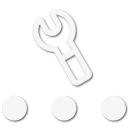First a disclaimer: I am not an engineer, chemist, expert in drivetrain/gearing systems etc. What I AM is a driver/operator/heavy truck tech with experience in heavy shops for 20 plus years and over 2 million miles of driving experience with trucks weighing as much as 100 tons. I actually have an interest in how things work and WHY they work, so I tend to do a lot of nerd research to satisfy that interest. I will probably over simplify but that is how my mind works.
I will try not to be long winded.
Modern gear systems are engineered for a specific lubrication type. The lubricant specified isn't just about how slick it is. The heat conductivity, molecule size, thermal breakdown rate, thermal operating range, and a myriad of other things are taken into account when a fluid is specified for an application. Sometimes a fluid is specified that will make the operating temperature run a bit warmer to help the mechanical system reach and maintain their proper operating temperature (cooler metal is smaller metal and has a larger gap between parts). Changing the fluid to something that is out of spec or advertised as "better" is usually the quicker way to achieve premature failure. The engineers don't pick a specific brand to use, rather they specify an ASTM or ISO spec the fluid used needs to conform to. ASTM is very specific where as ISO is a more broad range. Usually the specification is for a fluid type that conforms to a specific standard rather than the actual ASTM (a API GL-5 fluid conforms to ASTM D7450). As long as the fluid conforms to the spec, the fluid should do the job well.... The key is should. There are a lot of lubricants - usually marketed as better or longer lasting etc - that take a proper lubricant that conforms to the standards and add their additives to it, making the end product not within spec. Using the GL-5 fluid as an example - the fluid is actually designed to provide a sacrificial layer of lubricant to the gears which breaks down under extreme pressure and prevents the metal surface from breaking down. Adding an additive that prevents this breakdown of the fluid will result in the gear surfaces wearing.
Using the manufacturer specified fluids in your rig isn't a backroom deal with a specific manufacturer to make sales (most of the time - German vehicles and Pentosin?). Check with your owner's manual or the dealer as to which standard to use and find a good reputable brand that conforms to and publishes their testing standards. Here's the key: Stick to that product. Some chemicals don't mix well with others... if you are using fluid A and then switch to fluid B, the additives could cause a reaction with each other causing a failure.
If you are running heavy modifications in your diffs, ask the manufacturer of the parts what is their recommendation.
As a real world example, the wrecker I drive weighs 61k empty and regularly tips the scales at 100k gross weight, with the drive axles taking the brunt of that weight (30k or more on each rear axle plus the weight they are pushing down the road). The axles are air lockers and rated at 27k. It has close to 300k miles on it with 600hp and over 2000 foot pounds of torque. The last fluid check on it had no metal in it and was only slightly off color. It will pull a 10 mile 6% grade fully loaded and only heat up to around 225 degrees. The diff fluid is a Chevron fleet grade product that conforms to the manufacturers spec. Yes I realize the diffs are designed to be stronger but everything scales down.
TLDR: Use and stay with a good brand with a spec that your manufacturer recommends and you will be fine. Change it at the recommended intervals, probably using the "severe duty" interval if you are off roading or are heavy footed on the vertical pedal.





